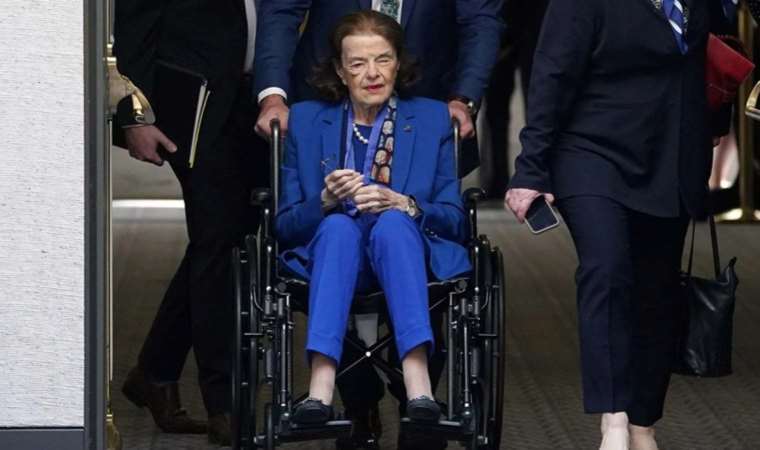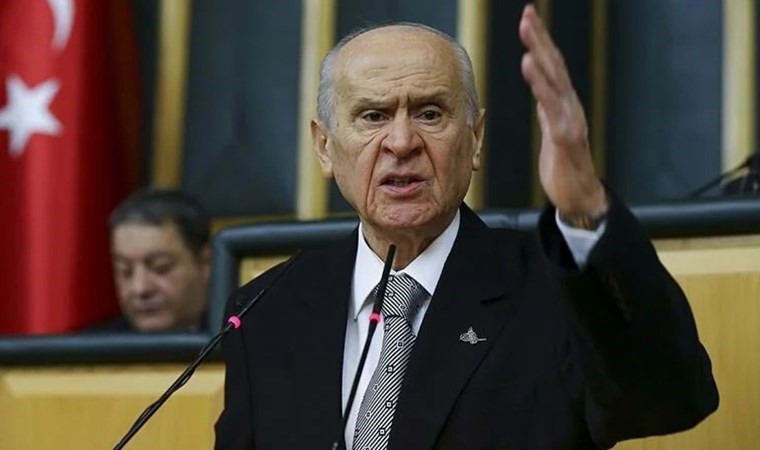Aging and Influence: Examining Senators' Prolonged Tenures and Donations
Amid ongoing scrutiny of US President Joe Biden's health, the steadily increasing average age of the US Senate has emerged as a significant point of discourse.

The tenure of US senators has recently sparked intense public debate. The catalyst for this discussion was a viral image of 90-year-old Dianne Feinstein, the Senate's eldest member. The snapshot captured a moment where Feinstein, seemingly disconnected from proceedings, remained silent during a vote and appeared uncertain about the matter at hand. In a subsequent scene, she raised her hand after a neighbouring senator prompted her with a simple "aye."
BREAKING: Sen. Dianne Feinstein (D-CA) has been asked to "just say aye" at vote on the defense appropriations billpic.twitter.com/wvB5JSqi0s
— Insider Paper (@TheInsiderPaper) July 27, 2023
The controversy deepened when footage surfaced of 81-year-old Republican senator Mitch McConnell remaining silent for several seconds during a speech. The public outcry that ensued wasn't solely directed at the senators' advanced ages but also at their long tenures. Feinstein has represented the Democratic Party in the Senate since 1992, while McConnell has been a Republican representative since 1985.
LONG-STANDING REPRESENTATION
While the average age of members in the US House of Representatives is declining, the Senate's average age is on the rise. The Senate's average age climbed from 62.4 in the 115th Congress to 65.3 in the 118th Congress. Of the 100 senators, 66 are over 60 years old, with both parties maintaining nearly identical average ages: Democrats at 65.4 and Republicans at 65.3.
Criticism has also been directed at the prolonged tenures of representatives in both the House and the Senate. This issue is exemplified by 83-year-old Nancy Pelosi, who has held the Speaker of the House position for over two decades. Even after stepping down from her role following the 2022 elections, Pelosi remains a presence in the House. Concerns have arisen due to her husband's substantial stock market dealings, which have appeared notably lucrative.
For instance, shortly after Pelosi acquired $2 million in Tesla shares, President Biden announced a shift toward government use of electric vehicles. Pelosi's husband, Paul, invested close to $5 million in NVIDIA shares just before a declaration about increased domestic chip production. This financial acumen has garnered significant attention, leading to the development of apps tracking Pelosi's stock market activities. Some stockbrokers claim to have prospered by tailoring investments based on these actions, contributing to Pelosi's personal fortune of $290 million as of 2023.

Paul ve Nancy Pelosi
Notably, Pelosi isn't the sole politician accused of benefiting from such "insider trading" practices. According to a New York Times investigation, 97 members of Congress have engaged in stock market transactions using information obtained through their political connections. However, a majority of these transactions occurred through relatives or spouses.
This detail holds significance as insider trading was officially banned in 2012. Despite this prohibition, the law doesn't bar family members of council members from participating in the stock market, leading many to use their families as conduits.
INFLUENTIAL CONTRIBUTORS TO WEALTH
Another point of contention centres on campaign contributions received by Members of Congress during election campaigns. An exemplar of this is Mitch McConnell, the Senate's Republican leader, who received substantial "donations" from tobacco and whiskey companies. Thus far, McConnell has amassed $47 million in contributions, elevating his personal wealth to $35 million.

Mitch McConnell
These donations often come with expectations of supporting specific legislation. For instance, some COVID-19-related decisions were endorsed by Democratic members who received donations from pharmaceutical companies. Similarly, Republican members who opposed gun control received contributions from gun manufacturers. A study revealed that ahead of the 2020 US elections, two-thirds of Congress members received donations from pharmaceutical companies, and 9 per cent received donations from arms manufacturers.
In summary, the advanced ages of US politicians, coupled with their extended tenures and the intersection of "donations" and stock market activities, have provoked substantial criticism. However, as these politicians hold the authority to address these matters, a transformative shift is unlikely.

En Çok Okunan Haberler
-
 Gram altında zirve için rakam verildi
Gram altında zirve için rakam verildi
-
 İmamoğlu'ndan Edanur açıklaması
İmamoğlu'ndan Edanur açıklaması
-
 Cumhuriyet'e açıkladılar: İmamlık yapıyordu
Cumhuriyet'e açıkladılar: İmamlık yapıyordu
-
 AKP İstanbul'u kapatıyor!
AKP İstanbul'u kapatıyor!
-
 Murat Kurum'a 'yeni görev' iddiası
Murat Kurum'a 'yeni görev' iddiası
-
 Kadıköy’de Tacettin Kutay'ın kızına sözlü taciz iddiası
Kadıköy’de Tacettin Kutay'ın kızına sözlü taciz iddiası
-
 'Ferdi Tayfur' videosuna ilişkin açıklama
'Ferdi Tayfur' videosuna ilişkin açıklama
-
 Acun Ilıcalı yeni takımını duyurdu
Acun Ilıcalı yeni takımını duyurdu
-
 Tolunay Kafkas'tan Galatasaray sözleri
Tolunay Kafkas'tan Galatasaray sözleri
-
 Erdoğan ve Özel görüşmesi...
Erdoğan ve Özel görüşmesi...

















